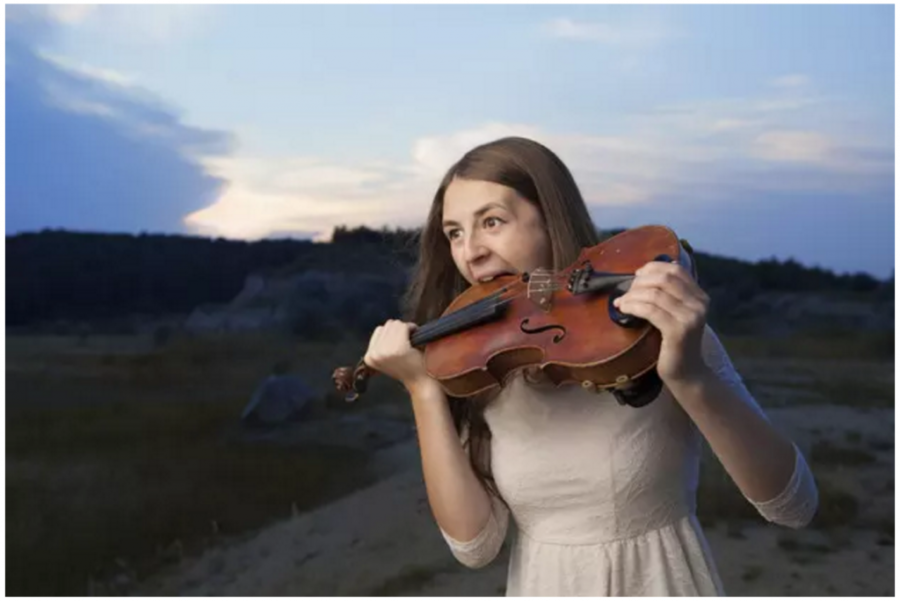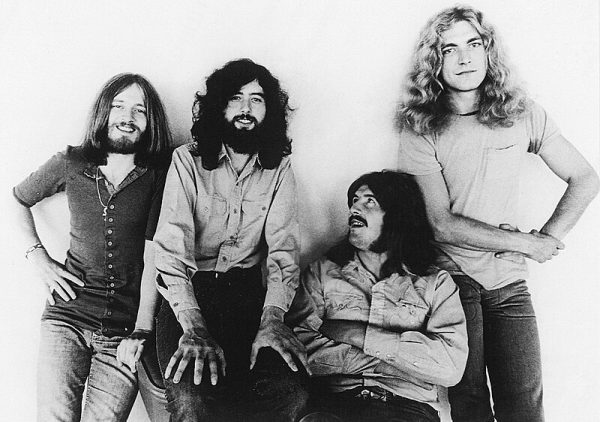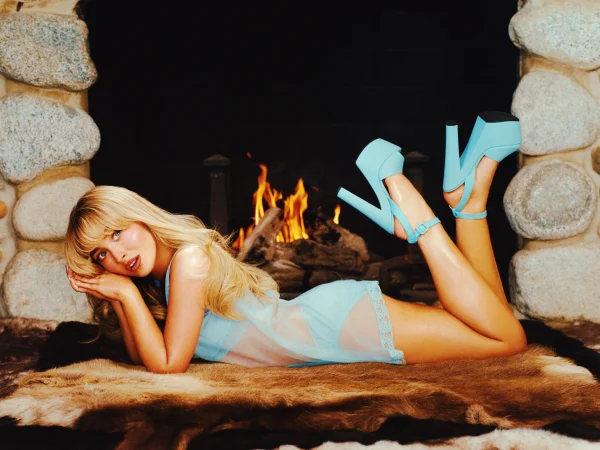Albums in 2021 That You Should Listen To
Every December, Spotify releases its “Spotify Wrapped,” an overview of one’s listening statistics throughout the year (or at least, January 1st to October 31st according to Parade Magazine). It’s a fun time for everyone, as people share their statistics and compare. There’s always the usual: people joking about how much they listen, to people streaming various “joke” songs throughout the year for a good laugh. All fun and games until one of your friends kill the mood by revealing just how much they listen to, beating all the competition with over 255,000 minutes. That’s me. I am that friend. I do that. I am very much aware that I’m pretty late for this. In fact, you could give the argument that this is all just an excuse to show off (if you could call it that). It’s not completely wrong; there are much better ways to say that I listen to a lot of music. But it’s just fun to look at numbers, you know? It’s fun to compare stats with others. It’s a way to connect with other people and see the similarities between music tastes other people might have.
Another way people can connect through music is year-end lists. From music to movies, any type of media is bound to be limited to the worst and best by the end of the year, where they will inevitably be ranked. These types of lists are, in my humble opinion, more fun to look at—you can get a much better grasp of someone’s musical taste rather than just what they streamed the most (funny enough, very different things). If you are a frequent viewer of music YouTube channels or a frequent reader of music publications, you may be very familiar with the critically acclaimed albums of the year. I don’t really think that I should reiterate why those albums are great, for you can easily look for yourself. But with the vast array of music out there, there are bound to be great albums that are just overlooked.
I’m not here to put these albums into a numerical hierarchy. These are just albums that I thoroughly enjoyed that I didn’t see as much praise for compared to some other albums I enjoyed. To be entirely clear, these are solely my opinion. I do not study music in a professional manner, rather listen and have a burning passion for it. 255,202 minutes can only get me so far. With that being said, these albums held a special place in my heart this year, and I hope they could do the same for you.
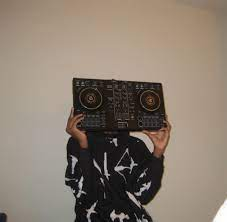 drive-by lullabies
drive-by lullabies
osquinn
Electronic, Alternative
The first listen to this debut album made by rapper, singer, producer Quinn, also known as p4rkr on streaming platforms, might not seem like much to most people as the volume difference makes this album sound like bursts of loud electronic noise intercut with periods of silence or barely audible ambient pieces. However, if this album is listened to in a more quiet setting, the layers start to appear, the meaning and emotions of drive-by lullabies will seep through and start to reveal themselves in a way that we’ve never seen Quinn express before.
The first thing you will notice about this album is how it sounds. You’ll catch it right away: cavernous electronic growling in the background of scattered squeaks on the opener. Setting up the entire album, “The World Is Ending Soon!” gives a taste of what the listener is in for. This is not the hyperpop album many of her followers were expecting, rather an unapologetic statement that shoves you into the ground before hovering over you, waiting to do it again. Take the song “can you really blame me for how I react,” as she sings “What you got was not what you wanted / And I cannot survive.”
With these in-your-face cuts come much more gentle and subtle songs. Take, for example, the ambient “birthday girl.” Quinn told Insider that the song depicts the time she ran away from home on her birthday after an argument between her parents became too intense. The track features soft piano chords over distant arguing then ends with what seems to be an old PSA about signs of serious depression. This is one of many moments in the album where if you get too distracted, you’ll miss it. It’s almost as if she’s trying to really open up, but she’s too shy to, like on the next track as she sings “Does it get better, boss? (It was so silly of me to ask).” Quickly after, she covers her tracks with aggressive and melting synths.
With this new sound comes an album that is unique to Quinn, personal yet distant, harsh but emotive. It’s a lo-fi alternative album that if any other artist made this recording, it wouldn’t have worked the way it did. This is Quinn’s album, through and through.
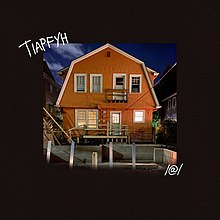 t.i.a.p.f.y.h.
t.i.a.p.f.y.h.
Left at London
Indie Pop, Lo-Fi, Alternative
One might not be 100% familiar with the name Left at London or Nat Puff, but might be more familiar with her viral and easily quotable Vines (“aha, I do that” / “I’m gonna munch, I’m gonna crunch”). Years later, and she has released her debut album: t.i.a.p.f.y.h., a journey of getting mental help (or at least trying to). Rough around the edges, it can feel very messy and maybe even cluttered at times, especially with the mixing. Then again, life is also very messy and maybe even cluttered at times.
One of many things that set this album apart from others is Nat Puff’s collaborative choices. From fellow Seattle native Ro Ramdin on “Out Of My Mind” to rapper and producer William Crooks on “Kudzu,” these are very personal collaborations that rest in very special places in Puff’s heart. It very clearly shows up in the music as well, for the collaborators play a huge role in the sound of t.i.a.p.f.y.h. This results in an album that feels human, an album that is able to tackle deep topics like mental health while knowing that friends will always have your back.
Stylistically, t.i.a.p.f.y.h. is all over the place in the best possible way. Some songs are sticky indie-pop tunes, a couple are hyperpop-inspired indie cuts, and most have elements of both. The opener “Pills & Good Advice” takes the listener through multiple phases of indie to hyperpop to indie-pop throughout its 10-minute runtime, while feeling much shorter. It’s an ambitious opener that represents a clear tone-setter for the entire album, for the song encapsulates much of the sounds heard throughout.
In “Pills & Good Advice,” she talks of a recent release from an institution of some sort. She realizes she is on her own (“All that I have left / Pills and good advice”) and struggles to continue life (“I’m a coward, it don’t matter what I do / From ‘I can’t do it anymore’ to ‘I can’t do it, I can’t do it”). When in this desperate state, she later begins to find hope as she sings “For I’ve found peace in the madness” as the song comes to a close. It’s where the song leaves off that sets up the narrative of the album, as she starts to discover self-love.
While nothing is perfect about this album from its rough mixing to the scatter-shot approach, it’s kind of the point. It’s difficult to try and navigate a broken world while being broken yourself. At least friends will always be there for you.
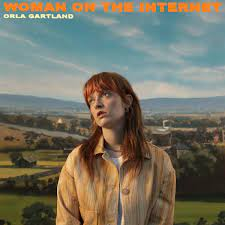 Woman on the Internet
Woman on the Internet
Orla Gartland
Indie Pop
In the opener “Things That I’ve Learned,” Orla Gartland outlines various things she has learned during her time as a Woman on the Internet. Don’t compare yourself to others, it’s okay to feel everything at once, you’re worth the space you take up, all of which seem to read like a mini-manual for survival on the Internet. “These are the bridges that I’ve burned / These are the things that I’ve learned,” she chants, as the instrumental builds with a crisp guitar riff over a staggering beat. As the song ends, Gartland recites the first verse somewhat like a final warning or affirmations to think of when progressing throughout the rest of the album, or even life on the Internet in general. “Say what’s on your mind, every time, don’t regret it.”
What “Things That I’ve Learned” effectively does is give the listener an insight into the various themes that Gartland touches throughout the album: insecurity, toxic masculinity, and a host of other things that many women can encounter while online. While these topics aren’t new to anyone, Gartland puts them in an online setting, specifically one in the social media landscape. Social media opens up a whole new world for many people, and with that extra exposure, not everything will be rainbows and butterflies. It may seem like social media and reality won’t mix, but realistically, social media will start to seep into reality. The music reflects that, as you’ll hear guitars, drums, and Gartland’s voice front and center, reassuring that real life is still present. However, you’ll probably catch a synth here and there, or maybe a vocal sample, or a vocoder. Not only do these electronic embellishments enhance her music, but it is a musical representation of how social media can affect everyday life.
Electronic enhancements to these indie-pop songs are great and add so much more sonic depth to these songs, but it’s nothing new. While connections to the social media narrative can be made, it can seem like a stretch. However, Gartland’s lyrics perfectly meld those worlds together, and in turn makes this album feel so much more cohesive. From the confessional lyrics of “More Like You” about wishing you were someone else, to the big sister-like qualities of “You’re Not Special, Babe,” or even the catchy explosions of “Zombie!,” Gartland gets her message through effectively, with the backing instrumental adding an obliterating punch to her message. Woman on the Internet is Orla Gartland saying what’s on her mind, with absolutely nothing to regret about it.
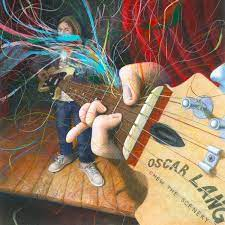 Chew The Scenery
Chew The Scenery
Oscar Lang
Indie Rock
Sometimes, you just want to love someone. In his debut album, Oscar Lang shares that same feeling and tries to pursue that mutual connection no matter the ups and downs. Either that or he just wants to make some great indie rock tunes that are guaranteed to get stuck in your head. Yearning for love or not, one thing’s for sure: Oscar Lang’s Chew The Scenery slaps. If you wanted love songs, you got love songs. If you wanted indie rock, you sure got indie rock. If you wanted both, well, I have very good news for you.
The album is split into two short parts. The first half is the feel-good indie rock that paints the image of the failing relationship, while the second part is a more gentle approach with slower songs describing the aftermath. With songs like “Yeah!” and “I Could Swear,” he shows frustration and dissatisfaction within the relationship, while also longing for the spark that ignited the relationship in the first place. The first half delves into this narrative, providing tunes that display a potent amount of bitterness, mixed with some social commentary like “21st Century Hobby,” which talks about social media obsession. Backed by instrumentals that balance noise and aggression with danceability, Oscar Lang creates abrasive and harsh sounds that work together in a way where it’s perfect to lose yourself in. Songs like “Stuck” drown themselves in distorted guitars and explosive drums, while Lang’s voice pierces through. Meanwhile with the aforementioned “Yeah!,” he takes an 8-bit loop from what sounds like an old video game from your childhood and then builds it with rock instrumentation until it becomes a towering indie-rock monster. After a few bangers, the first leg of the album closes with “Write Me A Letter,” a soft piano ballad where Lang offers to fix this messy relationship, crying out: “So listen, listen close: / My heart hurts letting you go”
After “Write Me A Letter” comes a short intermission telling you to take a break, then return to your optimal listening position for the second half of the album, which has noticeably longer songs that take their time to emerge. It’s in this section of the album where he is seen struggling with the breakup until he finally thanks his former lover for everything she has given him.
Even if you’re not here for the story, that’s completely fine — the narrative is loose enough that you can just enjoy (or rock out) to the music — but even if you ignore the lyrics, you can’t help but feel what he’s feeling. If the phrase “Chew the Scenery” means to be dramatic or overreact, Oscar Lang definitely understood the assignment.
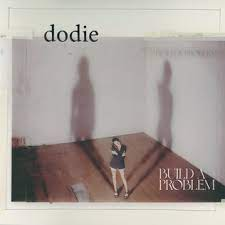 Build A Problem
Build A Problem
dodie
Indie Folk, Folk Pop
If I may be completely honest, I am pretty biased when it comes to Dodie Clark, also known as “dodie”. I absolutely love her EPs, and I have been enthusiastically following her musical journey for years, even loving her YouTube channels, which she posts every once in a while. She is a major influence on my music taste and how I’ll act if I can’t go to the dentist. That said, I was pretty much guaranteed to enjoy this album. However, my first listen was rather underwhelming, as this album isn’t something that wants to blow you away immediately. Plus, it’s rather short: the actual album runs at just over 30 minutes, not including the 2 bonus tracks and the various additional demo tracks at the end. Even if it was a little underwhelming at first listen, that isn’t really the point of the album. It’s an album that thrives in its subtlety, with little details catching your appreciation as you listen, gracing your ears with dreamy atmospheres along the way.
Build A Problem discusses Clark’s journey navigating adulthood and the various feelings in between, from her queer identity on “Rainbow,” to feeling detached from childhood optimism on “Before The Line.” While there isn’t any clear narrative running through the entire album, it feels more like the short stories or vignettes that make up an entire person. Through the middle of the album, there are short instrumental interludes breaking up the two distinct sections (although “Four Tequilas Down” is sequenced in-between these two interludes), offering a transition between the more upbeat first leg to the more depressing second leg. Of course, these themes aren’t very new to Dodie Clark. She has been writing about these experiences for nearly a decade (probably more) and has only gotten better. She specializes in intimacy—not only does her writing style feature confessions and little details that strengthen an emotional connection with the reader, but her voice is the kind that makes you want to lean in. It is soft and feathery, fluttering like a butterfly. The playful melodies she sings make the butterfly dance, strengthened by instrumentals that are enough to catch your attention, but not too distracting that it overshadows Clark’s voice.
Yes, it’s a subtle album—the fireworks won’t be going off on the first listen. But that’s kind of the beauty of it. It doesn’t want to overtake your life, rather occupy a special and specific place for it to reward you every time you pass by. Whether it’s the sweeping strings or the tiny clarinets, it is pretty easy to get lost in the little details of Build A Problem.



